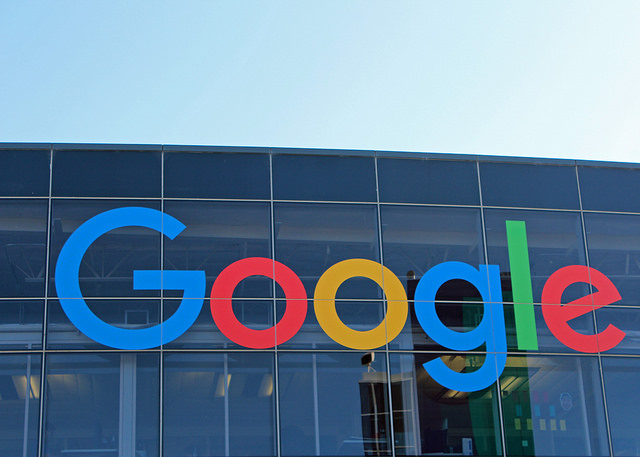 CLOUD
CLOUD
 CLOUD
CLOUD
 CLOUD
CLOUD
Google LLC is taking the opportunity to beef up its Google Cloud Platform as it visits Japan for its Cloud Next Tokyo ’18 conference.
The company made a raft of announcements early Thursday in Tokyo, including general availability of its Cloud Memorystore for Redis, new tools for developers, a vulnerability scanning feature for its Container Registry and a collaboration with NEC Corp. On Wednesday morning in Tokyo, it also announced updates to its G Suite software.
Based on the open-source Redis database and launched in beta test mode in April, the service is used to cache applications’ most frequently used data for fast access by saving it to a server’s memory instead of slower secondary storage as traditional systems do, thereby speeding response times. The service also helps automate complex tasks such as the provisioning, scaling, failover and monitoring of applications, Google said.
Holger Mueller, principal analyst and vice president at Constellation Research Inc., said the launch of Cloud Memorystore for Redis was another specific use case offering that’s becoming a key part of Google’s cloud strategy.
“Google keeps pushing use case specific offerings to GCP,” Mueller said. “Picking popular loads like Redis and enabling and supporting it on an IaaS is a good strategy for such providers.”
With the official launch, Google is making Cloud Memorystore available in more regions. The service is now being offered in the Netherlands, Singapore and Tokyo, in addition to its Oregon, Iowa, South Carolina, Belgium and Taiwan regions where it has been available since entering beta.
On the developer side, Google introduced a new “code search” feature for its Cloud Source Repositories service, which is similar to GitHub and used to host the codebases of large software projects. The new code search feature, first designed for Google’s internal use, is used by its engineers “multiple times per day” to improve their productivity.
“Cloud Source Repositories is powered by the same underlying code search infrastructure that Google engineers perform their code searches on every day,” Google product manager Russell Wolf wrote in a blog post. “You get super fast results and save a lot of time finding that piece of code that you know you’ve seen before.”
Google is also stepping up security for developers using its software container services for the continuous integration/continuous deployments of modern applications. The company announced a new Container Registry vulnerability scanning feature that’s now available in beta.
Google’s Container Registry is a repository for storing and managing Docker container images. From there, DevOps team leaders can also decide who gets access to those images and perform various analysis to check for vulnerabilities. Google said the new vulnerability scanner essentially helps to automate this latter task by detecting known security vulnerabilities during the early stages of the continuous integration/continuous delivery or CI/CD process — which enables application development teams to deliver code changes more often — and preventing the deployment of any potentially compromised images.
“All container images built using Cloud Build, our fully managed CI/CD platform, are automatically scanned for OS package vulnerabilities when images are pushed to Container Registry once the Container Analysis API is enabled,” product manager Juan Sebastian Oviedo and Nikhil Kaul of Google Cloud team said in a blog post announcing the feature. “That way, you get quick feedback on potential threats and identify issues as soon as your containers are built.”
“Workload portability matters to enterprises, and Kubernetes is the tool of choice, so the improved security that comes with registry scanning is a key step for Google as it tries to increase the confidence of CxOs to use its cloud,” Mueller said.
In addition, Google said it’s partnering with Japanese tech giant NEC in order to expand its cloud presence in the country. The collaboration will see Google and NEC offer new consulting services aimed at helping Japanese enterprises get set up on GCP. The companies also plan to offer migration and implementation support for firms that want to migrate to Google’s cloud, plus training initiatives aimed at getting local engineers up to speed.
As for G Suite, Google’s productivity tools that include Docs and Sheets, updates are all about helping administrators gain greater insights into their organizations as a way of boosting worker efficiency.
The first update is a new tool available in beta called Work Insights, which Google said is designed to “help businesses measure and understand the impact of digital transformation within their organizations, driven by G Suite.”
In a nutshell, the new tool helps admins to understand how company employees are using G Suite across their organizations, presenting this information in charts that can be easily analyzed to track deployment over time. The tool also provides insights on how employees are collaborating with one another, so admins can identify opportunities to further collaboration and reduce organizational silos.
Google also announced general availability of the investigation tools in G Suite’s security center service, adding “integrated remediation” to the platform’s intrusion and detection capabilities.
“The investigation tool, with its simple UI, makes it easier for admins to identify threats without having to worry about analyzing logs which can be time-consuming and require complex scripting,” Google said.
Support our mission to keep content open and free by engaging with theCUBE community. Join theCUBE’s Alumni Trust Network, where technology leaders connect, share intelligence and create opportunities.
Founded by tech visionaries John Furrier and Dave Vellante, SiliconANGLE Media has built a dynamic ecosystem of industry-leading digital media brands that reach 15+ million elite tech professionals. Our new proprietary theCUBE AI Video Cloud is breaking ground in audience interaction, leveraging theCUBEai.com neural network to help technology companies make data-driven decisions and stay at the forefront of industry conversations.